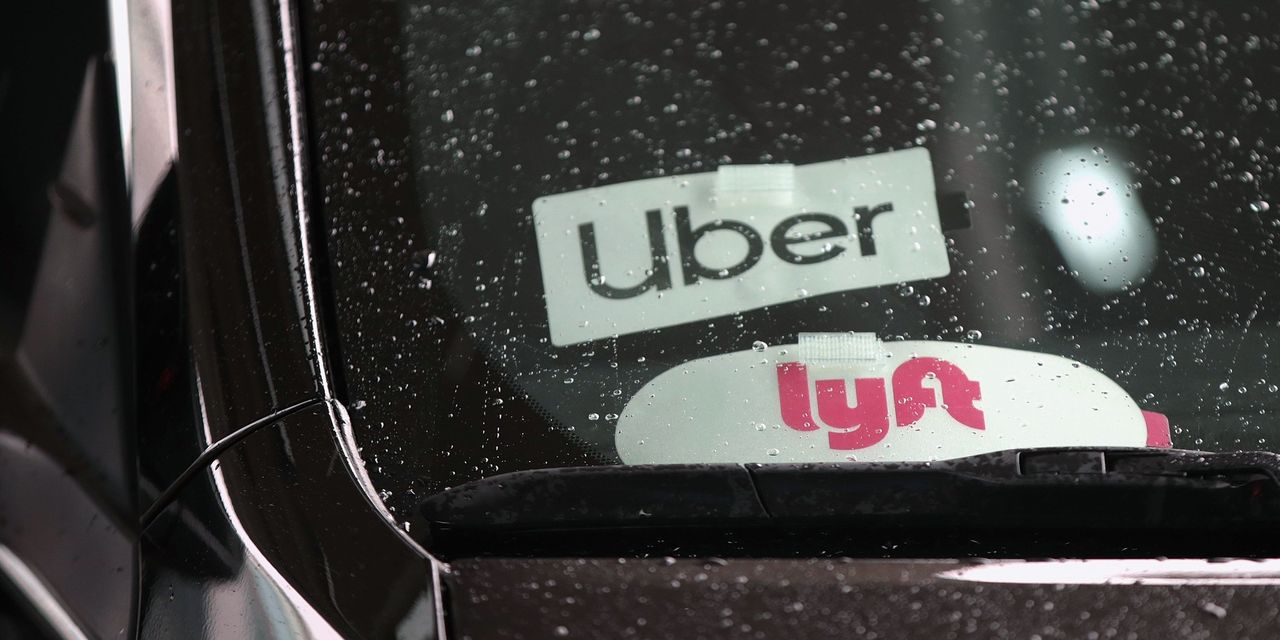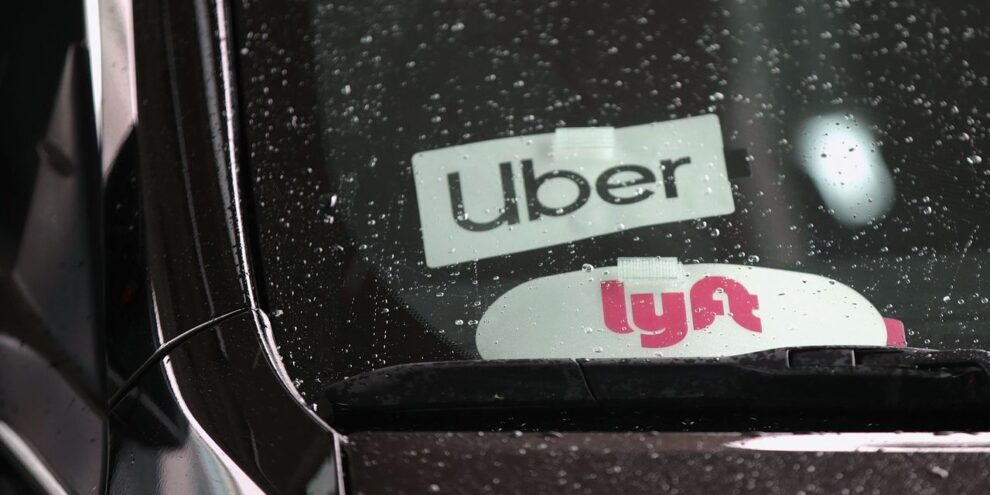
In the first legislative success for gig companies in their attempt to rewrite labor laws, Washington Gov. Jay Inslee on Thursday signed into law a bill that ensures new benefits for ride-hailing drivers in the state but does not classify them as employees.
While the new law has similarities to Proposition 22, a ballot proposal passed by California voters in 2020, Washington’s law has some key differences and went through the state legislature instead of an election. The bill, which was written with input from Uber Technologies Inc. UBER, +0.84% and Lyft Inc. LYFT, -2.29%, was also backed by a local Teamsters union and other unions in the state — though the leader of the International Brotherhood of Teamsters and other labor groups have gone on record in opposing it.
The new law promises a guaranteed wage and paid sick leave based on when transportation-network company (TNC) drivers have passengers in their vehicles, and some employment protections through a nonprofit drivers resource center. In addition, the state must form a stakeholder group to study how and what Uber, Lyft and drivers should be responsible for or contribute toward state programs that provide unemployment benefits, family and medical leave and long-term care benefits.
“We’ve been fighting for this,” said Peter Kuel, president of the Drivers Union near Seattle, which is affiliated with Teamsters Local 117 and says it represents 30,000 drivers in three counties in the area. “This is good for drivers,” he said in an interview with MarketWatch.
After winning at the ballot in California, gig companies promised to fight nationwide for a new “third way” in labor law — the creation of a category that gives workers some benefits and protections but doesn’t classify them as employees. For example, the companies backed a draft bill that failed to advance in New York last year, and have submitted a ballot proposal that could go before Massachusetts voters in November.
State Rep. Liz Berry, a Democrat who represents a district that includes parts of the Seattle area, told MarketWatch in an interview recently that she is proud of the bill she wrote. Drivers were her “North Star” as she worked on the details with input from Uber, Lyft, the local unions and others, she said.
“We hope this collaboration shows other cities, states and countries around the world what can be accomplished when drivers are put first,” said Uber’s head of public policy in the Western U.S., Ramona Prieto, in a statement Friday.
While signing the bill, Inslee said it “represents a compromise on a set of tough issues, how we legally classify the work status of gig drivers in Washington. This is a matter of national attention and one I address with caution.” He noted that it would establish “immediate and meaningful gains for these workers.”
Jen Hensley, head of government relations for Lyft, said in a statement: “Drivers achieved this win because labor organizations, legislators, and app-based companies listened to them, and then worked together to drive a historic bill that works for them.”
Washington Rep. Debra Entenman opposed the bill, the only Democrat in the state’s House of Representatives to do so. In an interview with MarketWatch, she said “I don’t think the ‘third way’ is a good and ethical goal for people who are workers.”
In today’s economy where there is more talk about the quality or lack thereof of some jobs, Entenman said it’s worth asking why people turn to gig work in the first place, and why some people need more than one job. When it comes to thinking about making compromises with multibillion-dollar companies like Uber and Lyft, “are people thinking they’re never going to be the driver?” she asked. “Do we want the ‘third way’ to be part of the social contract?”
Kuel of the Drivers Union said the bill is “way, way better” than the California law, which he called “terrible” partly because the companies base a drivers’ minimum earnings on miles and minutes, and under Prop. 22 drivers are paid 30 cents a mile. The Washington bill will give drivers a mileage rate of $1.17 a mile in most places, and $1.38 a mile in trips originating from places with a population of more than 600,000, like Seattle. (For comparison, the IRS standard mileage rate deduction for business use is 57.5 cents a mile.) Beginning Dec. 31, drivers will earn at least $3 per dispatched trip.
He is also pleased by the provision for the drivers resource center, which would represent drivers in cases of deactivation. The center would be selected by the state through “a competitive process,” be funded by a 15-cent-a-ride surcharge and must not receive money from the TNCs.
A Drivers Union spokesperson said it is not sure whether the union will run the resource center, but that it does have experience helping drivers get reactivated.
Kuel added that the benefits this bill secures for Uber and Lyft drivers sets a new standard that he thinks other state leaders should follow.
That’s exactly what its opponents are worried about.
“You can’t settle for modest improvements over Proposition 22,” said John Logan, a a professor and director of the Labor and Employment Studies Department at San Francisco State University. “You have to get something more substantial.” Logan said a key thing missing from the new law is collective-bargaining rights for drivers. “If drivers aren’t defined as employees, they don’t have collective-bargaining rights under the [National Labor Relations Act].”
Berry said her bill doesn’t preclude drivers from being classified as employees if federal legislation such as the PRO Act were to pass.
“I hope the federal government does act,” she said, but in the meantime, “we’re giving these drivers protections that employees have.”
Other gig workers groups are watching with interest.
“Drivers getting more benefits and protections in general is a good thing,” said Sage Wilson, a spokesperson for Working Washington, which works for benefits for delivery workers such as those who make deliveries for companies such as DoorDash Inc. DASH, +3.17%, Instacart and Gopuff. “The question that delivery drivers would have is, what’s the overall balance? What are the tradeoffs?”










